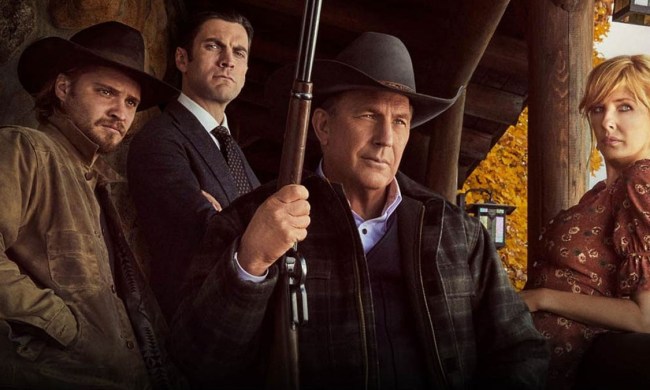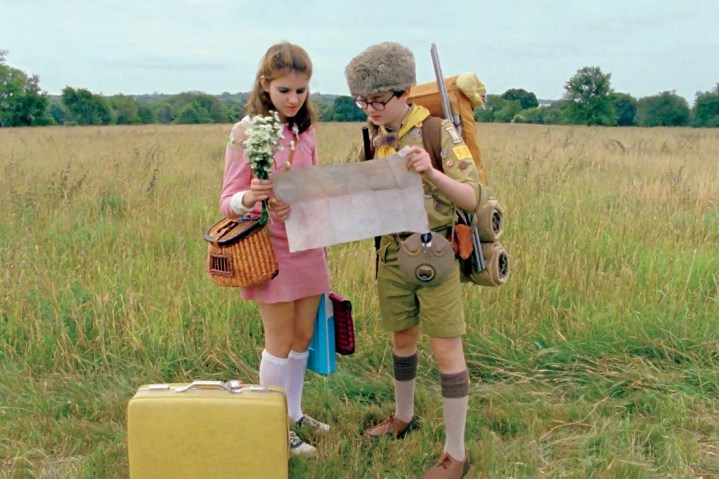
There aren’t many filmmakers working today who are quite as distinct or lauded as Wes Anderson. The writer-director has not only released around 10 of the most acclaimed American dramedies of the past few decades, but he’s also gradually honed a visual style that has inspired plenty of YouTube parodies and — much to everyone’s horror — AI-generated spoofs. This week, Anderson returns with his 11th feature film, Asteroid City, and based on the reception it received at the Cannes International Film Festival in May, it seems safe to say that he’s got yet another winner on his hands.
- 11. Isle of Dogs (2018)
- 10. The Life Aquatic with Steve Zissou (2004)
- 9. Bottle Rocket (1996)
- 8. The French Dispatch (2021)
- 7. Rushmore (1998)
- 6. Fantastic Mr. Fox (2009)
- 5. Asteroid City (2023)
- 4. The Darjeeling Limited (2007)
- 3. Moonrise Kingdom (2012)
- 2. The Royal Tenenbaums (2001)
- 1. The Grand Budapest Hotel (2014)
With that in mind, now seems like as good a time as any to bite off a bit more than we can chew and rank all of Anderson’s films, including Asteroid City, from worst to best. Read on to learn which of the filmmaker’s efforts we think aren’t quite as good as the rest, and which we consider to be the best of his career.
11. Isle of Dogs (2018)

Wes Anderson has never made a bad movie, but Isle of Dogs is certainly his most forgettable. His stop-motion follow-up to 2009’s Fantastic Mr. Fox, this 2018 animated dramedy delivers an occasionally charming, but often lackluster adventure. In most other directors’ filmographies, a movie like Isle of Dogs might not stick out quite as much as it does in Anderson’s, but it’s one of the only movies he’s made that just falls a bit flat.
Not only is the film less visually striking than Anderson’s other stop-motion comedy, but its world, characters, and story all feel less well-realized than is typical of the writer-director. For those reasons (and a few others), Isle of Dogs earns its place at the bottom of this list.
10. The Life Aquatic with Steve Zissou (2004)
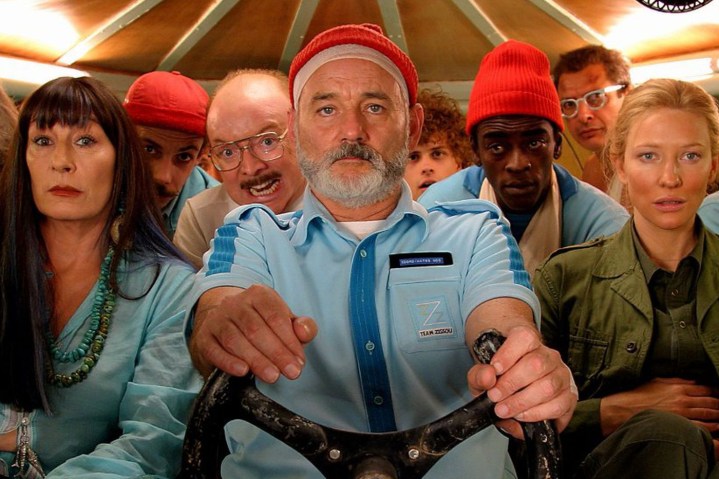
Only a director as accomplished as Wes Anderson could have a movie as good as The Life Aquatic with Steve Zissou land this low on a ranked list of his movies. His 2004 follow-up to The Royal Tenenbaums is one of the most visually inventive films he’s ever made, and its eccentric, central documentarian oceanographers are as charming as any of the other misfits that Anderson has introduced over the years.
As imaginative as it is and as astonishing as Bill Murray is in the film’s eponymous role, though, there are a handful of things that ultimately prevent The Life Aquatic from earning a higher spot on this list, including a supporting turn from Cate Blanchett that doesn’t quite work as well as she and Anderson likely hoped it would.
9. Bottle Rocket (1996)
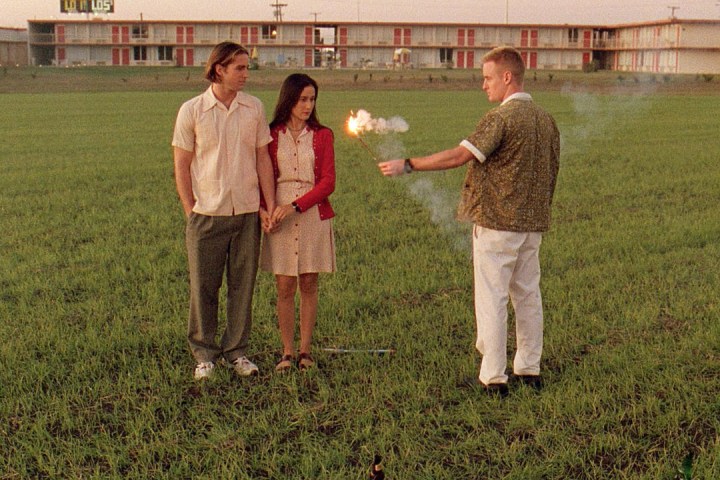
Not many directors can boast that their debut film was hailed as one of the best of its decade by Martin Scorsese, but Wes Anderson can. It’s not hard to see why Anderson’s first feature film, Bottle Rocket, made such an indelible impression on a filmmaker like Scorsese. While it’s undeniably rougher around the edges than any of Anderson’s other films, Bottle Rocket is such an infectiously exuberant piece of work that it’s impossible not to get swept up by its charm and romanticism.
To those paying attention at the time, it loudly and emphatically announced Anderson as a filmmaker to watch. Nearly 30 years after its release, the film’s only real sin is that it now feels like the first attempt at a meal that Anderson has spent the rest of his career perfecting.
8. The French Dispatch (2021)

When it was released in 2021, The French Dispatch was received somewhat tepidly by critics. While it garnered largely positive reviews, many characterized it as a step down from its director’s more recent films. In the years since it was released, though, The French Dispatch‘s reputation has only continued to improve — and for good reason. Even though it isn’t quite as focused or neat as many of his best films, Anderson’s quasi-celebration of the arts doubles as a love letter to not only history’s great artists, but also the editors and mentors who supported them.
The film is one of the most visually experimental and stunning that Anderson has ever made, and it’s worth seeking out solely for a third-act scene between actors Jeffrey Wright and Stephen Park that is so emotionally vulnerable and quietly insightful that it hits like a knockout punch. Even when he’s not necessarily firing on all cylinders, Anderson still has the ability to take your breath away, as he often does throughout The French Dispatch.
7. Rushmore (1998)

Many critics saw Wes Anderson as a director with real promise after Bottle Rocket, but it was his second film, 1998’s Rushmore, that truly announced him as a filmmaker whose work was worth investing in. The film bears many of the hallmarks of Anderson’s later movies, including a quietly suffering lead in Jason Schwartzman’s Max Fischer and an emotionally distant father figure in Bill Murray’s Herman Blume, but what makes Rushmore still so affecting to this day is just how matter-of-factly it explores its precocious hero’s journey of self-exploration. It’s a film that, much like its lead, desperately wants to be cool, but Anderson, in his own wisdom, doesn’t let that desperation distract viewers from the wound that quietly throbs beneath Rushmore‘s considerable layers of artifice.
6. Fantastic Mr. Fox (2009)

Based on the Roald Dahl children’s book of the same name, which Anderson co-adapted with Noah Baumbach, Fantastic Mr. Fox is a masterful expression of its director as a visual artist. It’s a spellbinding, endlessly entertaining collage of autumnal images that look almost too perfect to be real. Thanks to Baumbach and Anderson’s pitch-perfect script and the voice performances given by its cast (George Clooney, Meryl Streep, and Murray, among others), the film also ranks squarely as one of Anderson’s funniest.
It’s certainly not lacking for heart, either. On the contrary, Anderson, like Dahl before him, creates a strange kind of inimitable magic in Fantastic Mr. Fox. The fact that it isn’t higher on this list is more of a testament to the quality of Anderson’s output than it is a commentary on the film itself.
5. Asteroid City (2023)
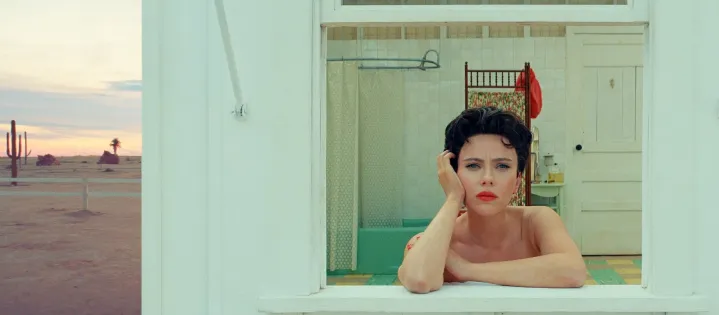
Partly a sci-fi adventure and partly a love letter to Broadway, Asteroid City is one of the most emotionally and thematically opaque films that Anderson has ever made. It’s also one of his best. The film’s cast boasts a wide array of returning Anderson favorites and several welcome newcomers, including Scarlett Johansson, Tom Hanks, and Margot Robbie, all of whom fall so quickly into Asteroid City‘s unique rhythm and tonal space that it feels like they’ve been working with Anderson for years.
Despite what its playful 1950s Americana aesthetic might have you believe, what ultimately emerges through all of the film’s many meta layers is an openhearted treatise on the value of exploration, whether it be artistic, scientific, or emotional. In the years to come, Asteroid City‘s place on lists like this one may very well end up shifting quite a bit. For right now, though, it seems safe to call it one of the better and more interesting movies that Anderson has ever made.
4. The Darjeeling Limited (2007)

For years, The Darjeeling Limited was considered Wes Anderson’s worst film. Sixteen years after its release, it’s unclear how it could have ever garnered such a reputation. Not only is The Darjeeling Limited one of Anderson’s most purely entertaining films (its central trip across India never fails to capture your attention), but it’s also one of the most emotionally confrontational of his career. Featuring three equally raw performances from Owen Wilson, Adrien Brody, and Jason Schwartzman, the film is an affecting exploration of what can happen when a trio of brothers tries to reckon with the fact that they have been — and still are — moving in three very different directions.
The film features a prolonged second-act flashback that easily ranks as one of the best sequences Anderson has ever put together. Beyond that, its script, which was penned by Anderson, Roman Coppola, and Schwartzman, features several lines of dialogue that are among the most heartbreaking of any that Anderson has ever brought to life on-screen. Frankly, we’d dare anyone to try to make it through Owen Wilson’s grand, third-act unmasking without being brought to the verge of tears.
3. Moonrise Kingdom (2012)

As much an examination of young love as it is a reminder of how youth inevitably fades, Moonrise Kingdom is among Wes Anderson’s most playful and melancholic films. While stylistically tamer than many of the movies that have followed it, this 2012 dramedy conforms to its real-life environments more naturally and authentically than perhaps any of Anderson’s other efforts. The result is a golden, late summer romance that contains hints of the mossy, burnt-orange fall that waits just around the corner for its characters.
Featuring a massive ensemble cast, Moonrise Kingdom is kept afloat by the rebelliously youthful performances of its two leads, Kara Hayward and Jared Gilman, who Anderson surrounds with a lineup of older performers, including Frances McDormand, Edward Norton, Tilda Swinton, and Murray. Of all of the film’s cast members, though, no one makes quite as much of an impression as Bruce Willis, whose performance as a lonely, lovestruck police captain ranks among the best of his career.
2. The Royal Tenenbaums (2001)

If it was Rushmore that officially launched Wes Anderson into the mainstream, then it was The Royal Tenenbaums that made his name one that audiences would never forget. This beloved 2001 classic features many of the details that have come to define Anderson’s filmmaking, including an ensemble cast of eccentric characters, a selection of perfectly placed needle drops, and images that are so carefully composed that they almost, almost distract from the film’s otherwise emotionally turbulent story.
The Royal Tenenbaums is the quintessential Wes Anderson film. It’s visually gorgeous, oddly funny, and sweetly, unexpectedly affecting. Unlike many of the movies that have followed it, The Royal Tenenbaums also contains the same raw thrum of emotion that defined all of Anderson’s early efforts. Over the years, the filmmaker’s emotional and stylistic interests haven’t always gelled perfectly well, but in The Royal Tenenbaums, they come together to create a rare, generation-defining piece of art.
1. The Grand Budapest Hotel (2014)

Many of Wes Anderson’s best films rely on comedic and emotional beats that are so precisely calibrated that they feel like daggers. As a result, watching his films can occasionally feel like being hit with moments of humor and heartbreak that completely sneak up on you. The Grand Budapest Hotel isn’t like that, though. Its story’s shades of comedy and tragedy don’t hit you like sharply refined daggers, but ocean waves, which continually wash over you until you’re so enveloped in the film’s world and 20th-century tale that its quiet, melancholic final moments manage to land with just as much weight as any other section or scene from Anderson’s other films.
The Grand Budapest Hotel also, notably, features what might be the best screen performance of Anderson’s entire filmography, which comes courtesy of Ralph Fiennes as the film’s central hotel concierge. Fiennes’ work here is nothing short of revelatory. It’s a performance that totally redefines what most viewers previously thought Fiennes was capable of. The fact that he didn’t receive more recognition for his performance in the film is disappointing, but ultimately matters little. As it is, Fiennes’ performance is the final piece that secures The Grand Budapest Hotel‘s place as the best movie Anderson has made up to this point.



